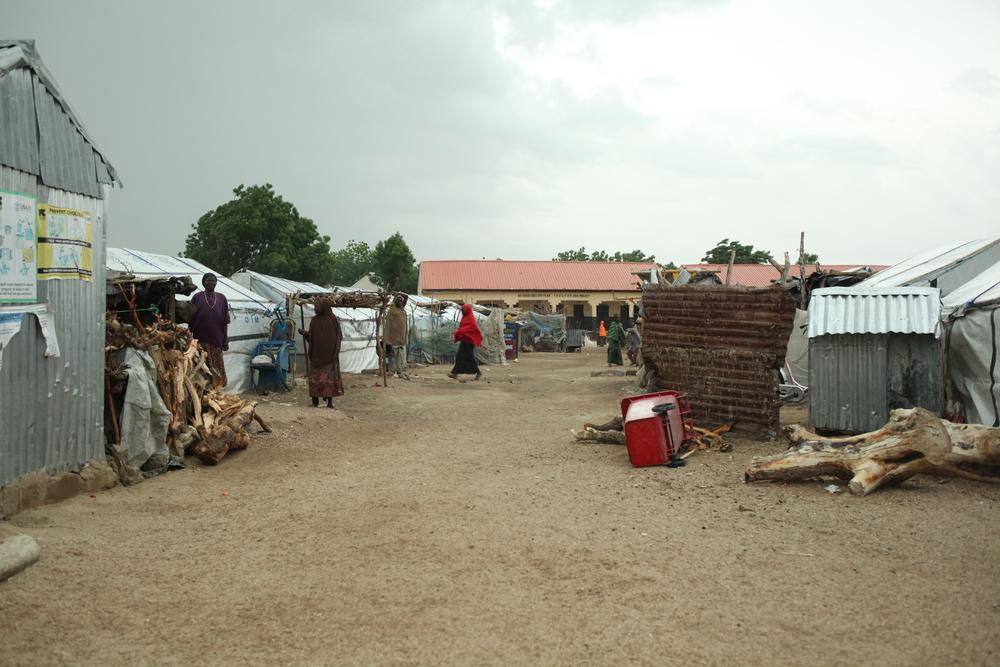What is the mental health situation in Gwoza?
“People in Gwoza have a wide range of mental health needs. While some of these are typical of the pressures related to daily life anywhere in the world, many are directly and indirectly related to the recent insurgency and the ongoing conflict. Issues such as grief and loss, trauma, the stressors of living in a camp for displaced people, a lack of employment, constant safety concerns and food insecurity can affect the ability of people to cope and function. Our work in Gwoza focuses on helping people learn ways to manage the issues in their life so that they can live the best they can in these difficult circumstances.”
How have children been affected by the conflict?
It seems like there is no one in Gwoza who has not been affected by the insurgency and conflict, and this includes children. Many children have lost family members to death and abduction, they've been uprooted from their home and forced to flee, and some have been abducted themselves. Life in their community has changed dramatically, and parents and caregivers are highly stressed, which affects the well-being of children. We see children who are wetting the bed, having nightmares and experiencing problems at school. Kids tend to act out what they know, so some that have been exposed to violence engage in play that includes shootings and killings with their friends. When given paper and pencils for drawing, some children can draw assault rifles better than a football or animal.
How is MSF supporting children’s mental health?
“We know that the number of children in need of mental health services is significant. MSF has invested in mental health services in Gwoza through staffing, education and training. Community mental health workers have been hired to provide awareness and education to local people about mental health. They talk to both adults and children about common concerns and screen those who might benefit from counselling. Counsellors have received training to provide care not only to children in need but also to their families, as the issues these kids are dealing with often affect everyone in the home. Mentally healthy caregivers are key in raising mentally healthy children, so our staff are working hard to address the needs of all involved.”
Recovering after abduction - Abubakr's* story
*voice and names changed for anonymity
Can you give an example of mental health activity?
“One of my favourite activities each day is the group we offer for caregivers and young children who are suffering from issues like malnutrition, amputation, severe burns and life-threatening illnesses. In this group, we use play as a way of educating caregivers about the importance of engaging with and responding to children. We teach child-rearing strategies, provide an opportunity for caregivers to discuss the challenges they face and get support from their peers, and encourage the development of a strong bond with their children. It's always a fun group to attend and gives everyone a needed break from the daily work in the hospital ward.”
Given the precarious living conditions of people in Gwoza, what are your concerns for the future?
“First of all, I would like to highlight that life goes on, despite difficult conditions. The people living in Gwoza demonstrate a high level of resiliency, which is helping them to survive in the current context. For many adults, their religious faith is particularly important at a time like this and prayer is a well-used coping technique. For children, engaging in positive play, and having a caregiver who can comfort and cuddle them when needed, is very important. MSF's work, alongside local health authorities, is regularly made up of success stories.
However, the situation remains extremely worrying. Already it is 10 years since the conflict started. “This long-term crisis – which affects more than 60,000 people in Gwoza and as many as 1.8 million people across Borno state – prevents most people from imagining a future for themselves and causes great psychological distress. As long as the crisis lasts, the need for mental health support will continue to grow. It’s crucial that mental healthcare is available to children and adults living in this situation.”
